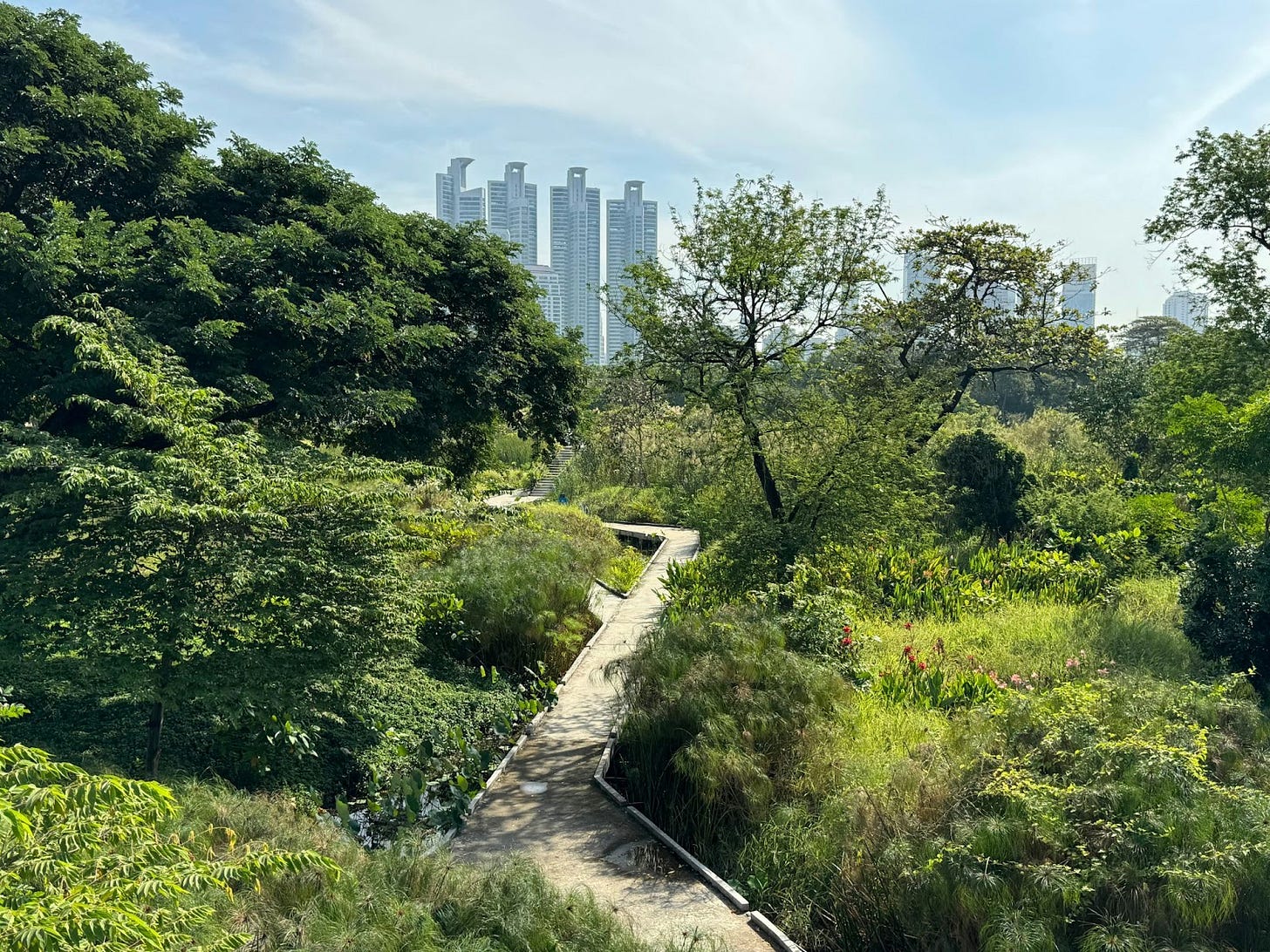The myth of separation
by Maia Bergeron

Despite all of humankind's advancements, we remain bound to the same cycles as every other creature on Earth. We breathe the same air, drink the same water, and will one day return to the same soil. Recognizing this does not diminish our humanity but completes it. In a world shaped by climate disruption, mass extinction, and ecological grief, reconnection is not a luxury or a sentimental ideal, but rather a source of wellbeing and profound healing. What is our existence without connection?
I recently took part in a Council of All Beings, a powerful and unconventional exercise rooted in deep ecology. Each participant embodied an aspect of the natural world such as a river, a bird, a rat, or a tree and spoke from that perspective about the state of our planet. At first, we hesitated, stumbling over our words as we tried to imagine the inner world of a nonhuman being. It was an unfamiliar mental space, and yet, surprisingly, a deeply intuitive one. We are rarely invited, especially in western societies, to see through the eyes of other life forms, let alone speak on their behalf.
A striking pattern emerged, with nearly every voice sharing the same message: Remember that you are not alone, above, or separate. You are part of a vast, living web and you are not as different as you may think.
This separation between the natural world and humans is deeply rooted in culture. In many industrialized societies, especially in the West, nature is framed as something “out there”, a pristine wilderness, a destination, a backdrop for recreation, or a resource to be harnessed. This view defines nature in opposition to humans, separating the built world from the biological one. Studies, such as a report from The Nature of Americans, reveal that people often experience nature as a concept rather than a relationship. Many believe that "real" nature requires travel, gear, or leisure time. This mental distancing, in turn, leads to emotional disconnection. And when we are emotionally disconnected from nature, we are more likely to see it as an inert and exploitable warehouse of material rather than a community we belong to.
Emerging research from across disciplines such as ecology, psychology, and anthropology explores this dichotomy. For example, a 2020 meta-analysis published in Frontiers in Psychology found that individuals with higher levels of “nature connectedness” were more likely to adopt pro-environmental behaviors and reported higher levels of happiness and life satisfaction. Feeling connected to the natural world is not only beneficial to the other animals and natural systems around us but also directly impacts and is beneficial for our overall well being.
This deep connection is not a modern invention but an ancient inheritance. E.O. Wilson’s biophilia hypothesis posits that humans possess an innate affinity for the natural world, born of evolutionary necessity. For 99% of human history, our survival depended on a keen awareness of and relationship with other species, weather patterns, ecosystems, and seasons. We were not observers, we were participants.
Contemporary life increasingly disconnects us from the natural world. The United Nations projects that by 2030, 61% of the global population will reside in urban settings. This urbanization has contributed to a significant decline in time spent outdoors, especially among children. A study by Rhonda Clements found that children in the early 2000s spent considerably less time playing outdoors compared to their mothers at the same age, often favoring indoor activities and screen-based entertainment
This shift in lifestyle has broader implications. As we spend less time in nature, we risk forgetting that we are part of it. This disconnection can lead to decisions that overlook ecological limits, fostering a sense of invincibility that justifies the commodification, consumption, and extraction of natural resources without regard for the environmental consequences. Such attitudes contribute to the ongoing ecological crisis, as they ignore the vital feedback loops that link human survival to the health of forests, oceans, and the atmosphere.
In an age of disconnection and environmental loss, the path forward may not begin with more data or dire predictions. It may begin with relationships. With remembering. With returning. Connection is not just the foundation of sustainability, it is the foundation of being human.

This is a truly powerful post, and it was a pleasure to read it! This idea of nature as a concept rather than a relationship is a salient point and reminds me of a book I read earlier this year by Marcy Norton. She coined this idea of modes of interactions between animals and humans, the lens through which we understand animals in a way that serves us. But as you so eloquently put it, our survival and well-being are dependent on fostering dynamic relationships with nature.